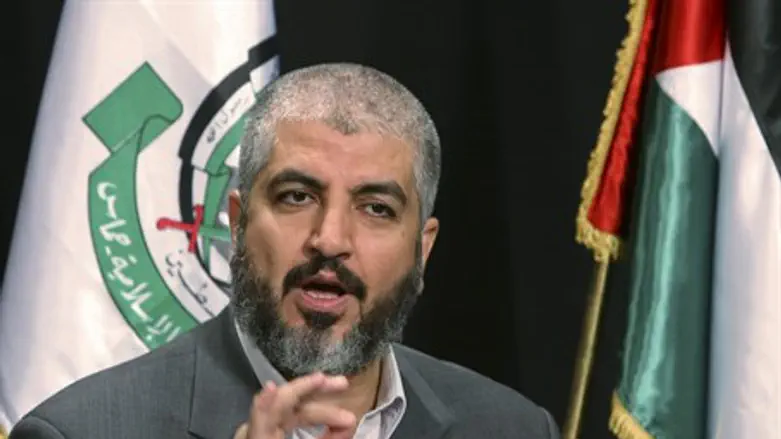
A recent visit by Hamas's senior leadership to Saudi Arabia has triggered a crisis in the terrorist group's relations with its key patron Iran, according to reports.
The Hamas delegation to Saudi Arabia last month, which met with the kingdom's King Salman and coincided with the Muslim Eid al-Fitr festival, included its "political bureau" chief Khaled Meshal and his deputy, Mousa Abu-Marzuk. It marked the first such visit by Hamas since relations with the Gulf kingdom broke down two years ago, when Saudi Arabia backed the ouster of Egypt's Muslim Brotherhood President Mohammed Morsi, an ally of Hamas.
In addition to the King, officials also met Crown Prince Mohammed bin Nayef and Deputy Crown Prince Mohammed bin Salman, the king's son and defense minister.
The visit provoked a furious response in Iran, which has traditionally been Hamas's major patron and which views Saudi Arabia as one of its greatest nemeses.
According to a senior Iranian Revolutionary Guard official cited by Huffington Post Arabic, the Iranian government responded by cancelling a planned visit to Iran by Hamas leaders.
The Iranian official attended a "stormy" meeting with Hamas leaders at another Arab capital following the visit, at which angry words were reportedly exchanged. Iranian officials were said to be particularly irked by the fact that whereas an open invitation to Khaled Meshaal by Tehran has been ignored for four years, the terrorist leader immediately accepted the Saudi invitation.
Hamas - an Arab, Sunni Muslim terrorist group - has had a bumpy relationship with Iran since the start of the Syrian civil war in 2011.
Having previously enjoyed a close relationship with both Shia Iran and Allawite-ruled Syria, it saw those relations deteriorate to breaking point when Hamas refused to openly back the Assad regime against the mainly Sunni Muslim rebels. Its noncommittal stance drew fire from both sides, and the Assad regime promptly expelled all Hamas representatives from Damascus.
Ties with Iran have since been repaired to a great extent, both due to mutual strategic considerations as well as elements within Hamas's Gaza-based leadership - particularly Mahmoud al-Zahar - who have traditionally been close to Tehran. However, at the same time Hamas leaders in Qatar and elsewhere have sought closer ties with fellow Sunni Muslim Arab states.
Despite Meshaal and Abu-Marzouk's insistence that the visit was simply conducted in a spirit of "openness to relations with all countries," the visit has been interpreted as a clear slap in the face to Tehran.
Saudi Arabia's sudden outreach to Hamas may have been intended as precisely that, stemming Iran's regional designs by driving a wedge between it and one of its most important proxies.